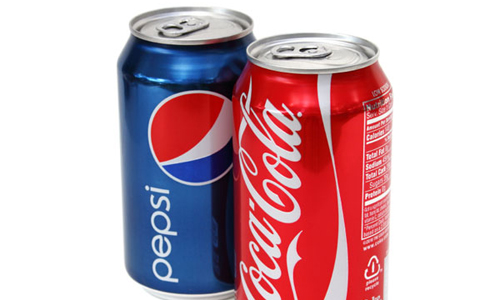Coke and Pepsi sponsor groups trying to wean U.S. off soda

NEW YORK- Coca-Cola and PepsiCo made donations to nearly 100 influential U.S. public health organizations from 2011 to 2015 in an effort to silence groups that might otherwise push for laws regulating soda, researchers contend.
Over the same five-year period, the two beverage giants lobbied against at least 28 soda taxes and other measures intended to curb consumption of sugary drinks and stem the rising tide of obesity, according to a recent study in American Journal of Preventive Medicine.
“Although soda companies say they’re beneficent, this study shows what they really care about is improving profit – not public health,” lead author Daniel Aaron said in a telephone interview.
Aaron, a student at Boston University School of Medicine and Harvard Law School, wrote the report with Dr. Michael Siegel, a professor at the Boston University School of Public Health.
“The health organizations themselves have a duty to stop accepting this money,” Aaron said, because it creates a conflict of interest.
Recipients of the beverage giants’ corporate philanthropy included trusted medical groups and government agencies, including the American Academy of Pediatrics, the National Institutes of Health and the Centers for Disease Control and Prevention, the study found.
“These are really powerful medical groups,” Aaron said. “The fact that they’re accepting money from soda companies may influence doctors and policy.”
In fact, the report argues, the donations may have already influenced at least some of those groups.
Save the Children, for example, stopped promoting soda taxes in 2010 after taking more than $5 million from PepsiCo in 2009 and while seeking a major grant from Coca-Cola, the study points out.
Save the Children has denied that corporate support influenced its decision to quit promoting soda taxes.
Coke and Pepsi’s trade organization defended the soda industry’s support of health groups.
“We may disagree with some in the public health community on discriminatory and regressive taxes and policies on our products,” the American Beverage Association said in a statement. “But, we believe our actions in communities and the marketplace are contributing to addressing the complex challenge of obesity.”
The statement concludes, “We stand strongly for our need, and right, to partner with organizations that strengthen our communities.”
The study is the first to catalog soda companies’ sponsorships of national health organizations. The researchers systematically searched public documents, from medical journals to corporate annual reports, and identified at least 96 health groups sponsored by Coca-Cola or PepsiCo.
Researchers also found that big soda companies and their trade association spent more than $10 million a year lobbying against soda taxes and other regulatory measures on sweetened beverages.
Although cities across the country have considered soda taxes, the only U.S. city to levy one so far is Berkeley, California. Voters in three other Bay Area cities and in Boulder, Colorado will decide on similar measures to try to fight obesity through taxes in November.
A previous study showed a 21 percent drop in soda consumption in Berkeley’s low-income neighborhoods after the penny-per-ounce tax took effect in 2015.
Public health experts believe soda helped drive American obesity rates to among the highest in the world. The U.S. spent an estimated $190 billion treating obesity-related conditions in 2012.
The American Diabetes Association and the Juvenile Diabetes Research Foundation also are on the list of groups that took soda company money, the new study found. “The diabetes organizations were really surprising because of the established link between soda and diabetes,” Aaron said.
Diabetes rates have almost tripled over the past three decades, while sugary beverage consumption doubled.
Coca-Cola announced last year that it would not renew its sponsorship contracts with the Academy of Nutrition and Dietetics, the American Academy of Pediatrics, the American Academy of Family Physicians and the American College of Cardiology. The soda company blamed financial constraints.
Lorrene Ritchie, director of the Nutrition Policy Institute at the University of California in Oakland, is a registered dietician and a member of the dieticians’ group.
“Lots of us were unhappy about our organization taking soda industry money,” she said in a telephone interview. On the other hand, she said, “I understand exactly why all these organizations take money.
“In public health, I’m not selling anything. There’s no way to make money unless people fund that work.”
The study reminded her of the time, about a decade ago, she arrived at a speaking engagement only to realize she would be standing under a banner for the American Beverage Association, which represents Coca-Cola and PepsiCo.
She reluctantly delivered the speech. But, she said, “Afterwards I told them I would not give a talk if it was sponsored.” -Reuters







